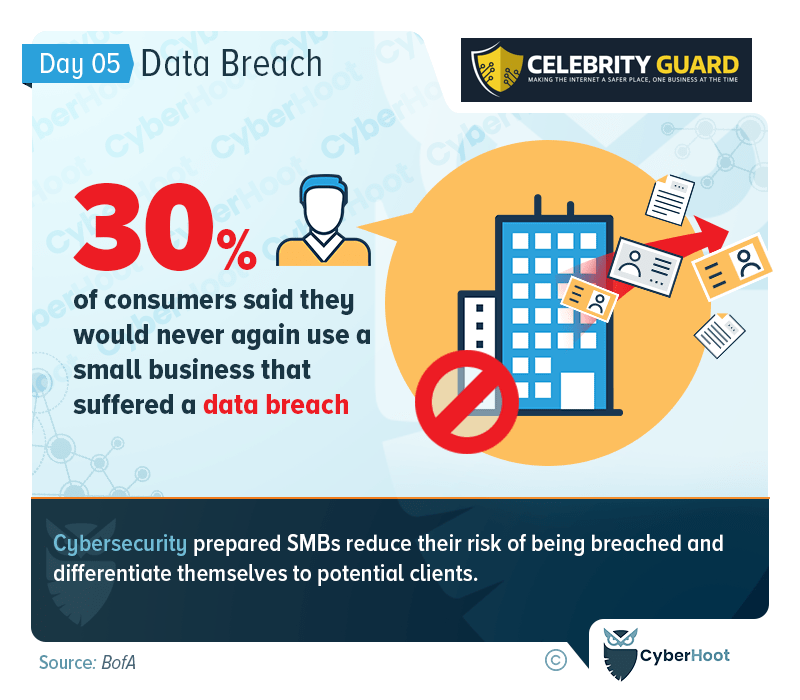In today’s digital landscape, protecting your small business from data breaches is paramount. Cyber threats loom large, and the potential fallout—ranging from financial losses to reputational damage—underscores the critical importance of prioritizing cybersecurity measures. Here, we delve into essential strategies tailored to help small businesses fortify their defenses and shield against data breaches.

1. Formulate a Comprehensive Cybersecurity Policy: Initiate your defense by crafting a thorough cybersecurity policy designed specifically for your small business. Clearly outline protocols for data management, employee access, and device usage. Regularly update and communicate this policy to ensure all team members understand their role in maintaining a secure digital environment.
2. Conduct Employee Training: Recognizing that employees are often the first line of defense, provide comprehensive training on identifying phishing attempts, creating robust passwords, and understanding the significance of regular software updates. Cultivate a culture of vigilance and ensure everyone comprehends the potential consequences of security lapses.
3. Implement Multi-Factor Authentication (MFA): Enhance security by enforcing multi-factor authentication for accessing sensitive information or systems. MFA adds an additional layer of protection, requiring users to verify their identity through multiple steps, such as a password and a temporary code sent to their mobile device.
4. Keep Software and Systems Up-to-Date: Outdated software poses a common vulnerability, making regular updates crucial. Ensure all software, from operating systems to security applications, is current with the latest patches. Schedule routine system checks to identify and address potential vulnerabilities promptly.
5. Secure Customer Data: For businesses handling customer information, encryption is non-negotiable. Encrypt sensitive data both in transit and at rest to thwart unauthorized access. Restrict access to customer information solely to employees who require it for their designated roles.
6. Regularly Back Up Data: In the event of a data breach, having regularly updated backups is invaluable. Implement a robust backup strategy, encompassing both on-site and off-site backups. Regularly test the restoration process to ensure swift recovery in the event of data loss.
In conclusion, small businesses must proactively shield themselves from the growing menace of data breaches. Establishing comprehensive cybersecurity policies, investing in security awareness employee training, deploying advanced authentication methods, maintaining software currency, securing customer data, and implementing regular backups are indispensable measures. In an era where data security is non-negotiable, these strategies are key to protecting the vitality and prosperity of your small business.